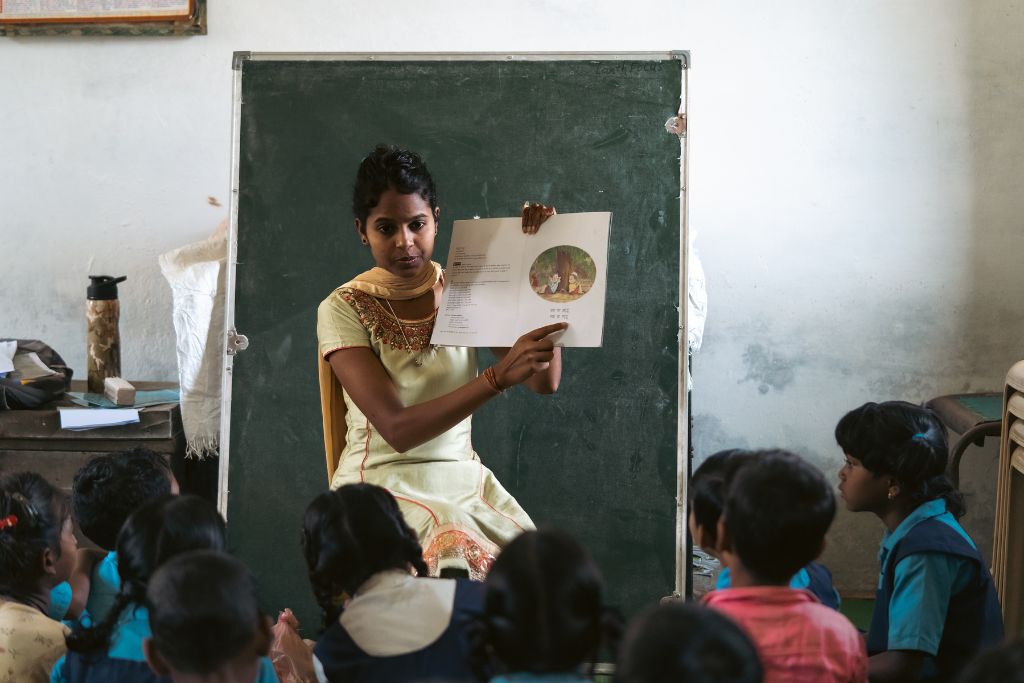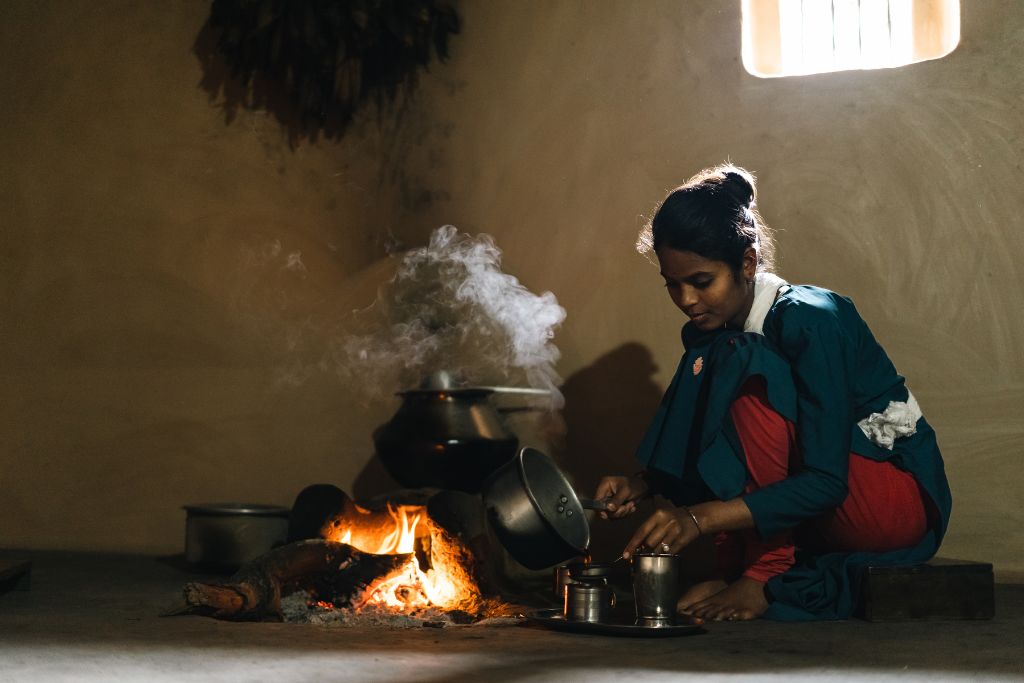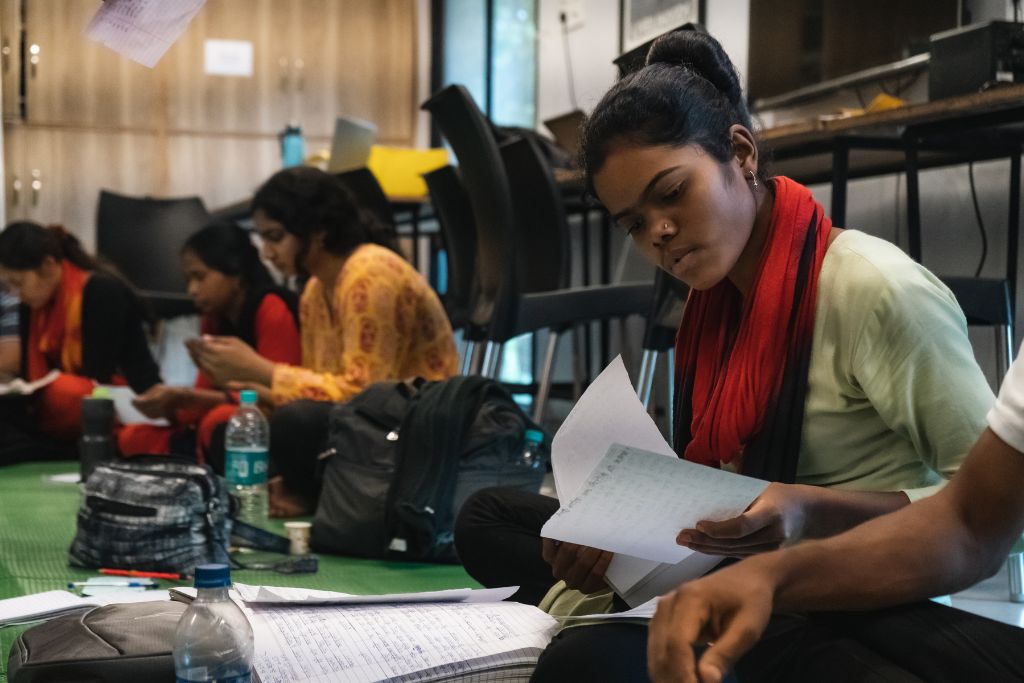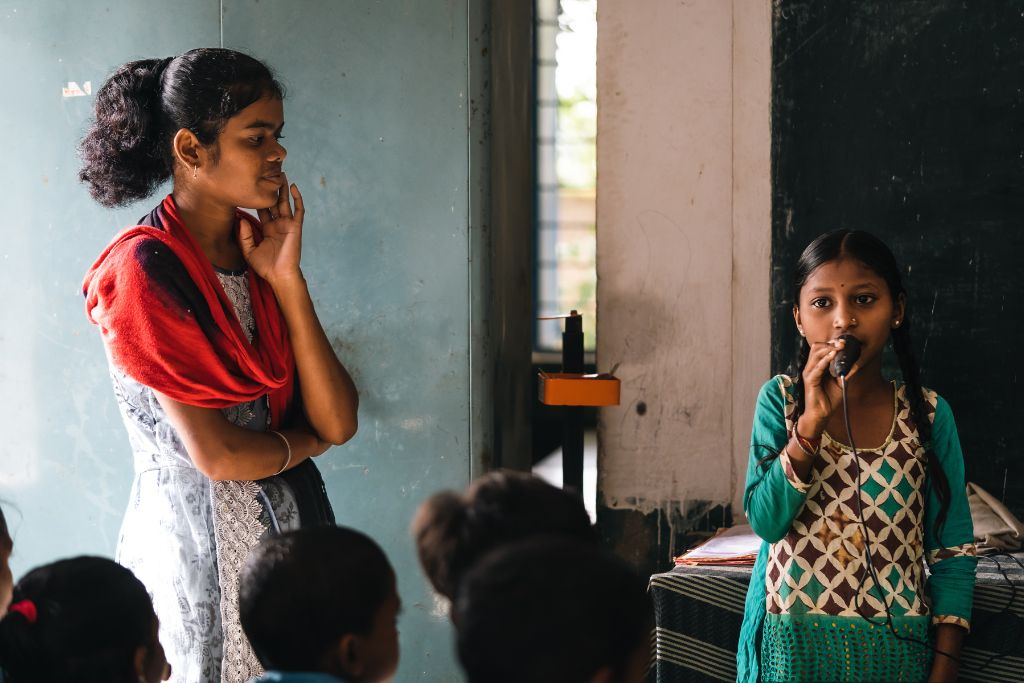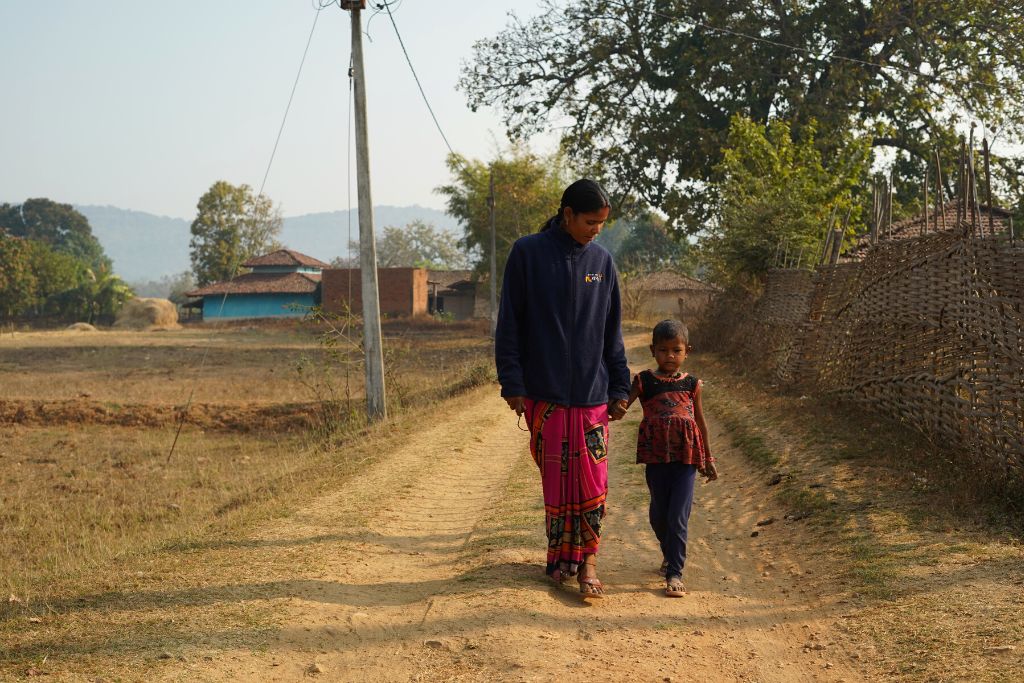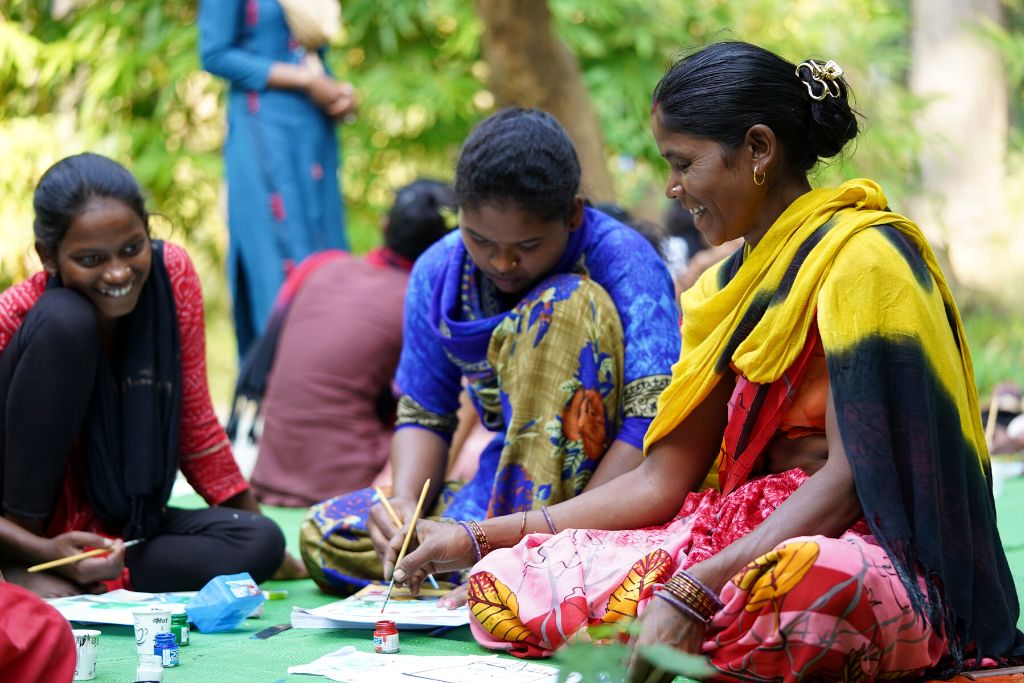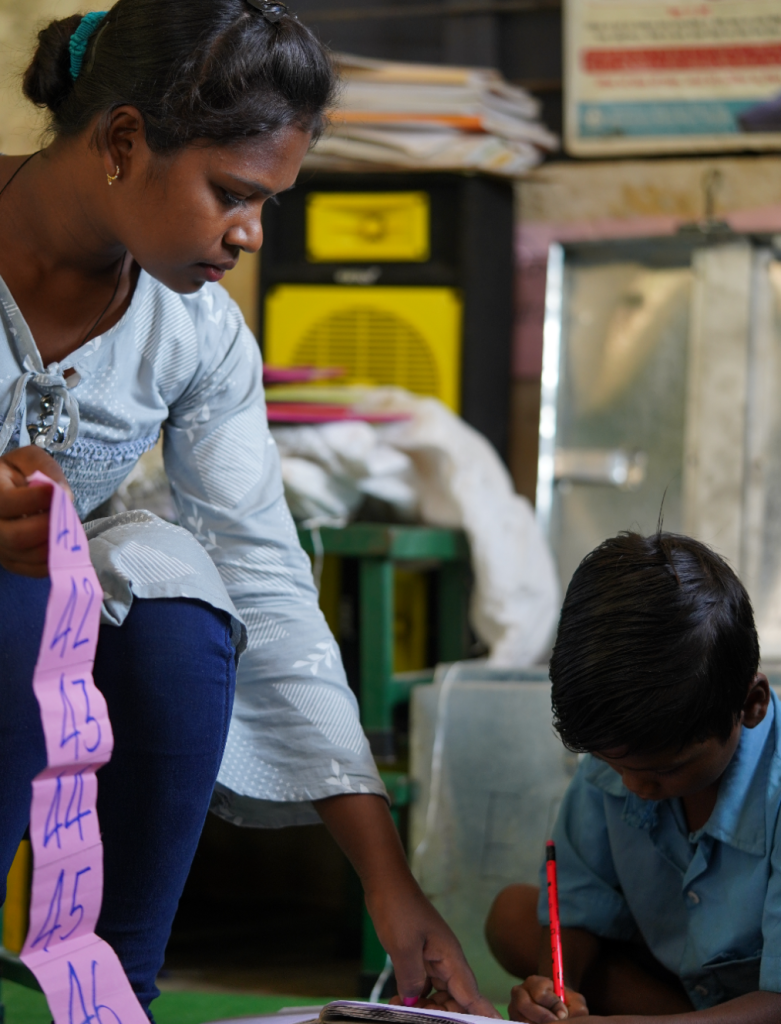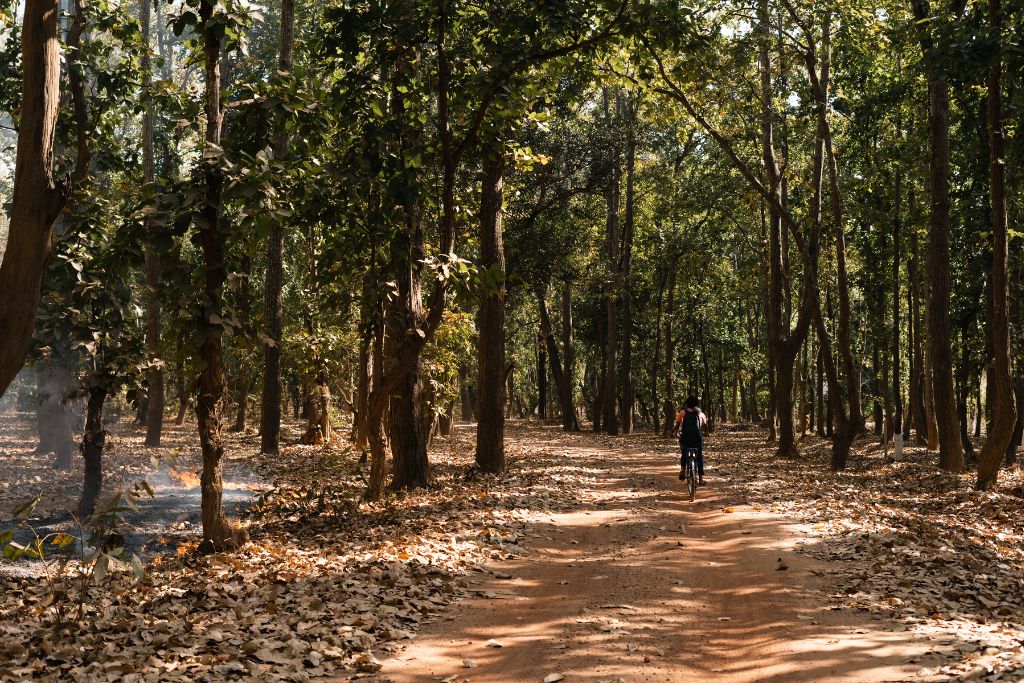
Kanha women make school fun for tribal kids
Young women from forest-dwelling communities living in the buffer area of Kanha National Park are empowering themselves by educating children using unique activity-based methods designed based on the socio-ecological context of the landscape.
Malti Yadav, 23, an educator at Earth Focus Foundation, conducts a storytelling activity for children at Anand Ghar (spaces established by the NGO where activity-based education is given to children from tribal communities) in Manjitola. She always aspired to be a teacher but had to abandon her education after class 12 for two years due to financial instability in her family. “I felt like my life came to a stop. After I joined the NGO, I saw the huge difference between the quality of education that the organisation provided through its play-based teaching methods and the one that usually involves rote learning,” says Yadav (Photo by Raoul-Ross D’souza)
Also Read | Community school shines beacon of hope in Surguja hills
Malti Yadav prepares tea for her family. She belongs to the Ahir community of traditional non-elite pastoralists. Most land around Kanha is owned by people from the Gond and Baiga communities. As Yadav’s family doesn’t own any land, their house is made on a small patch provided by the government which is not enough for agriculture. They cultivate rice on a third person’s land and half the profits go to the landowners. “If I hadn’t joined Earth Focus, I would have got married. Now I can pursue my dream of becoming a teacher and provide good education to the children of my village,” she says (Photo by Raoul-Ross D’souza)
Sanjana Meravi reads her notes during a teacher training session conducted at Earth Focus Foundation’s campus. “I didn’t like studying or getting involved in extracurricular activities at school. After joining the NGO’s education programme, I realised that subjects like mathematics and language can be taught in a fun way. If these methods were used to educate me too, I would probably be more successful today,” says Meravi, who is now learning computer use while simultaneously teaching the children at Dhondiyatola (Photo by Raoul-Ross D’souza)
Also Read | Community classrooms sow hope among Van Gujjar children
Sanjana Meravi looks on as her students sing at a Bal Sabha at Anand Ghar, Dhondiyatola. “If a teacher only talks about studying every day, the children develop resentment towards the teacher as well as the process of education. I love dancing but wasn’t encouraged to express my talents. So I encourage my students to perform at the Bal Sabha organised every Saturday. Looking at them showcase their talents makes me want to go back to school. All my friends have moved out and have either got married or gone to the city for a job. So now my only friends are these children and my fellow shiksha preraks. I share a special connection with each of them.”
Hansi Pandre walks to Anand Ghar, Baigatola, with a child. Pandre is a mother to three children, two of whom study in her classroom. She was a housewife before she joined Earth Focus Foundation’s education programme. “Sometimes I bring the pre-primary children of the village along with me to school since I walk to school with my own children. Initially, I had to call almost all of them from their homes. Now they love coming to school. They have started communicating and grasping the concepts quickly,” she says (Photo by Raoul-Ross D’souza)
Hansi Pandre teaches pre-primary students at Anand Ghar, Baigatola, how to identify and draw basic shapes of plants and animals using pebbles collected from the school’s yard. “These children earlier lacked the confidence even to speak. The organisation’s play-based teaching method has brought about a positive change in my life by introducing me to different ways of teaching and learning. I wish to spread the knowledge about these teaching methods outside my village as well but I first want to ensure that every child in Baigatola is well educated,” she says (Photo by Raoul-Ross D’souza)
Hansi Pandre paints during a workshop conducted at Earth Focus Foundation campus. “I noticed that the education my children were receiving was not good enough for their personal development. So I decided to teach them myself. But first I had to learn new methods of teaching to make learning more engaging for the children. Joining the NGO has enhanced my knowledge and skills. I wish to spread information about Earth Focus’ teaching methods with others outside my village as well but I first want to ensure that every child in Baigatola is well educated,” she says, holding a painting in her hand that depicts her vision of an ideal village (Photo by Raoul-Ross D’souza)
Pushpa Markam works as a shiksha prerak in Anand Ghar, Chicharangpur. “I had to abandon my education after class 10 because there was no high school near my house. When I got the opportunity to join the NGO’s education programme, I thought it could bring about a change in my life. Teaching the children here hasn’t been easy. They are not encouraged by their parents to attend school and are made to help their parents in their work. Initially, I had to call them from their homes and also help their parents get them ready for school. But now they say they miss me even if I don’t go for one day,” says Markam. She has resumed her education now that there is a high school near her village and wants to work for the agriculture department in the future (Photo by Raoul-Ross D’souza)
The lead image at the top shows Sanjana Meravi, travelling several kilometres by cycle and crossing multiple forest patches every day to attend the free computer course and teacher training sessions conducted at the NGO’s campus (Photo by Raoul-Ross D’souza)
Raoul-Ross D’souza is a former communications and outreach intern for Earth Focus Foundation and a freelance photographer and videographer with a passion to build a career as a multimedia journalist in the field of environmental/rural reporting.
